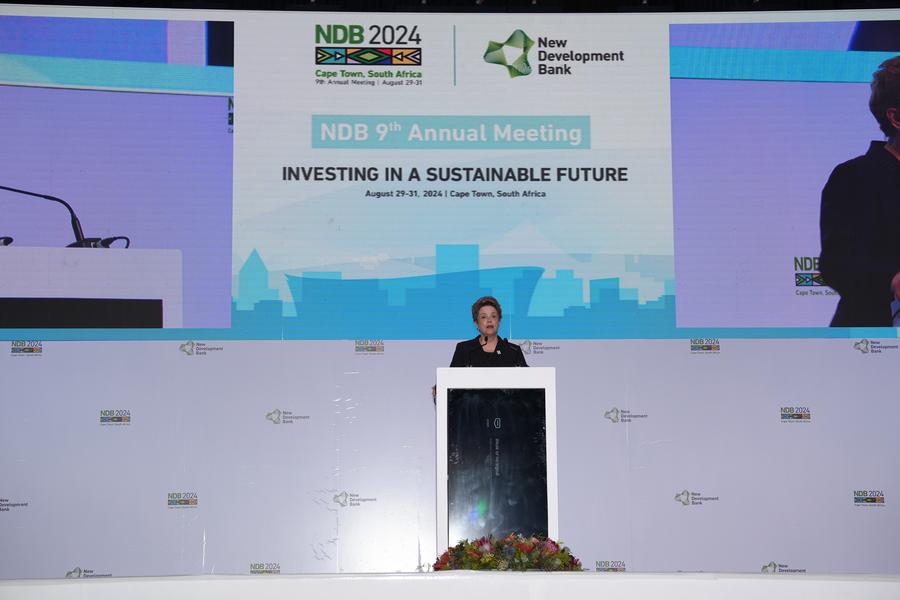Interview: BRICS economies have great potential, capacity for growth -- Rousseff

Dilma Rousseff, president of the New Development Bank (NDB), speaks at the opening ceremony on the second day of the 9th NDB Annual Meeting in Cape Town, South Africa, on Aug. 30, 2024. (Xinhua/Wang Lei)
The New Development Bank serves as a significant platform for international cooperation that transcends the territorial boundaries, said Dilma Rousseff, president of the bank.
SHANGHAI, Oct. 22 (Xinhua) -- The BRICS countries are powerful economies with great potential and capacity for growth, Dilma Rousseff, president of the New Development Bank (NDB), has told Xinhua.
"Measured by GDP, the BRICS countries have already surpassed the G7 in importance," said the former Brazilian president.
BRICS is an acronym for Brazil, Russia, India, China, and South Africa, five major emerging markets with considerable economic potential. Other than the countries that became new full members on Jan. 1, 2024, over 30 countries like Thailand, Malaysia, Türkiye and Azerbaijan have either formally applied for or expressed interest in its membership, while many other developing countries are seeking deeper cooperation with the group.
The BRICS countries have realized that it is very important for emerging and developing countries to have proper mechanisms and instruments, thus the NDB and the Contingent Reserve Arrangement were established, Rousseff said.
During the bloc's sixth summit in Fortaleza, Brazil in July 2014, leaders of the initial five countries witnessed the signing of the Agreement on the New Development Bank.
The NDB is designed to guarantee much-needed investments in infrastructure, such as in logistics and digital areas, in social infrastructure, like school and university structures, as well as in science, technology and innovation, and also in health, she said.
The NDB serves as a significant platform for international cooperation that transcends the territorial boundaries, which not only amplifies the voices of BRICS countries but also represents the shared aspirations of other nations, she added.
Headquartered in Shanghai, the NDB was jointly established by Brazil, Russia, India, China and South Africa in 2014 to mobilize resources for infrastructure and sustainable development projects in BRICS member nations and other emerging market economies and developing countries.
In 2021, the bank started expanding its membership with Bangladesh, the United Arab Emirates, Uruguay and Egypt as new members.
The NDB has, since its launch, invested nearly 35 billion U.S. dollars in sectors such as clean energy and energy efficiency, transportation infrastructure, water resources and sanitation, and digital infrastructure, playing a positive role in improving global economic governance.


